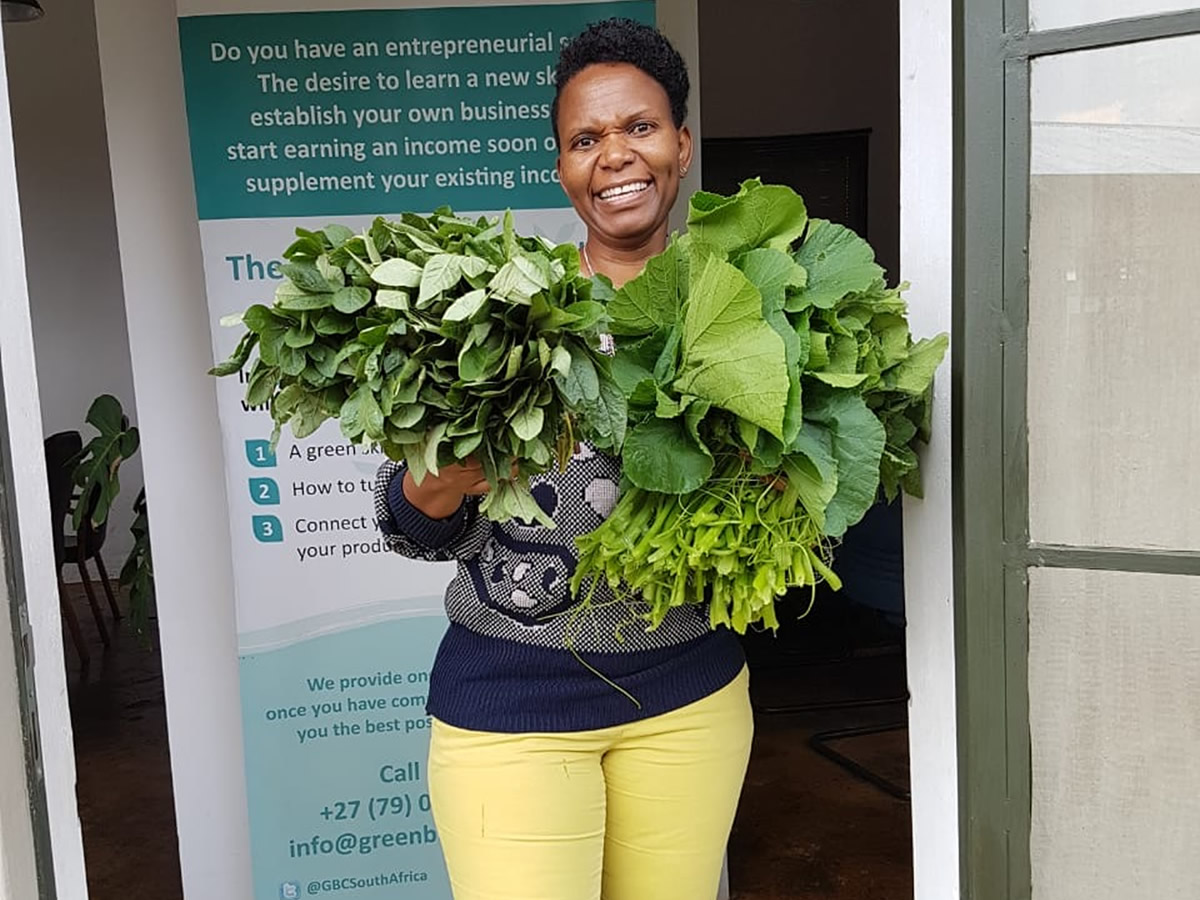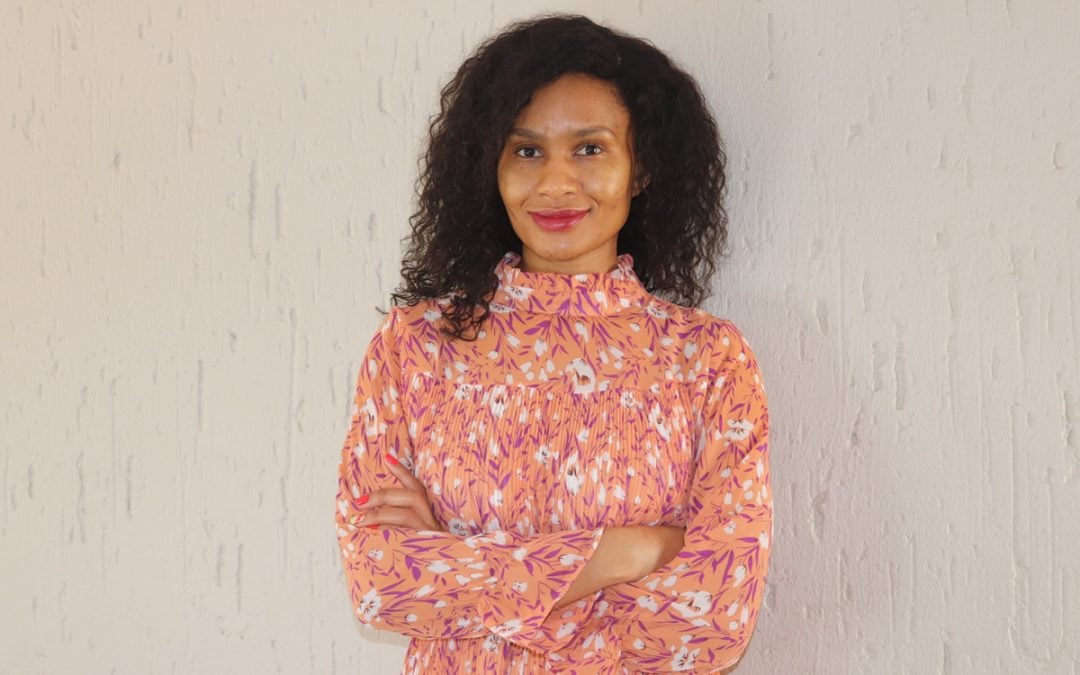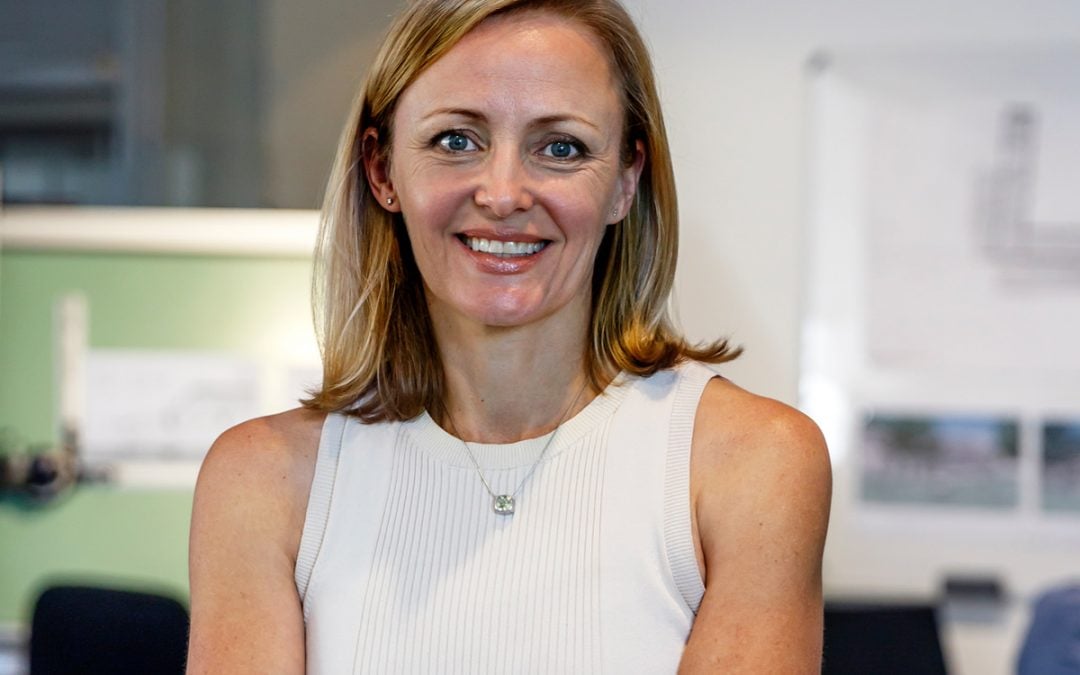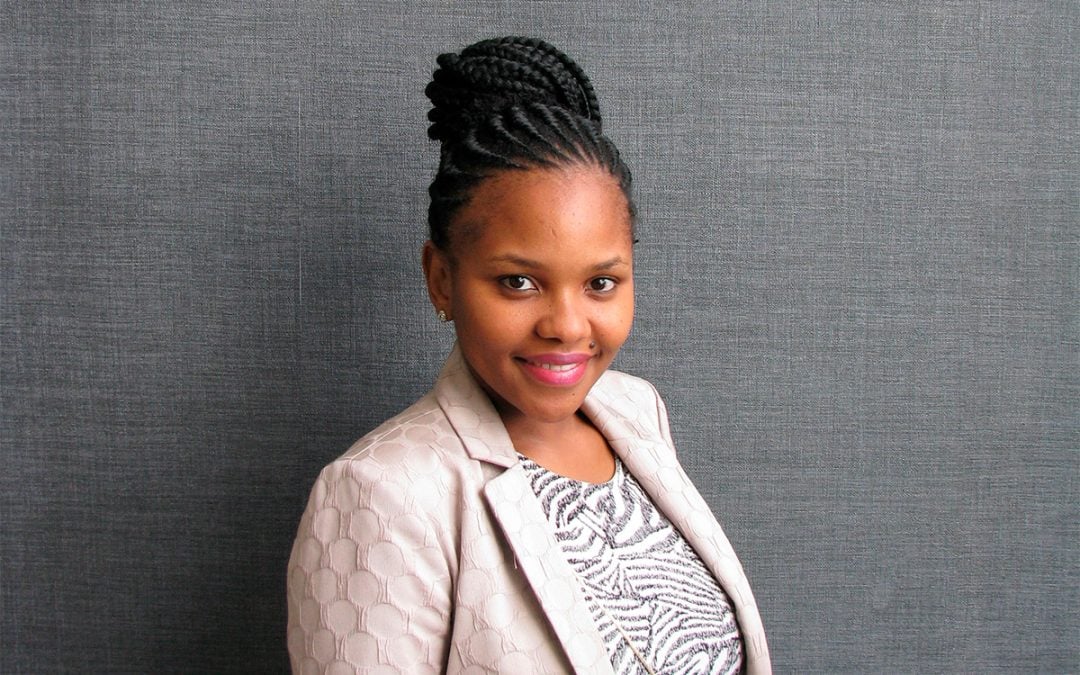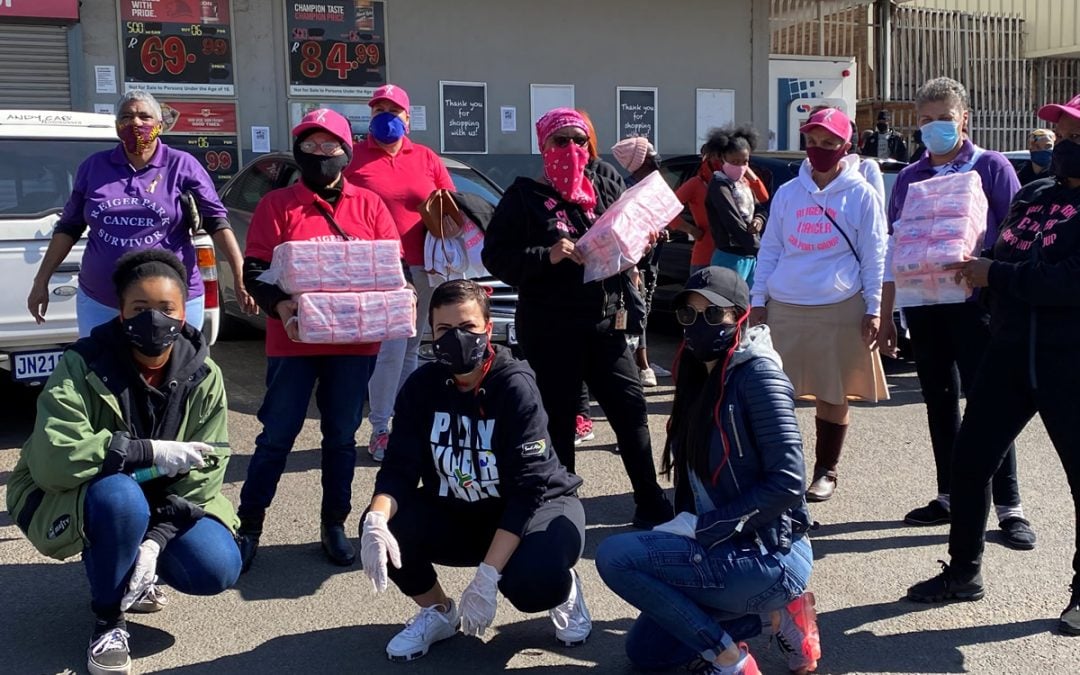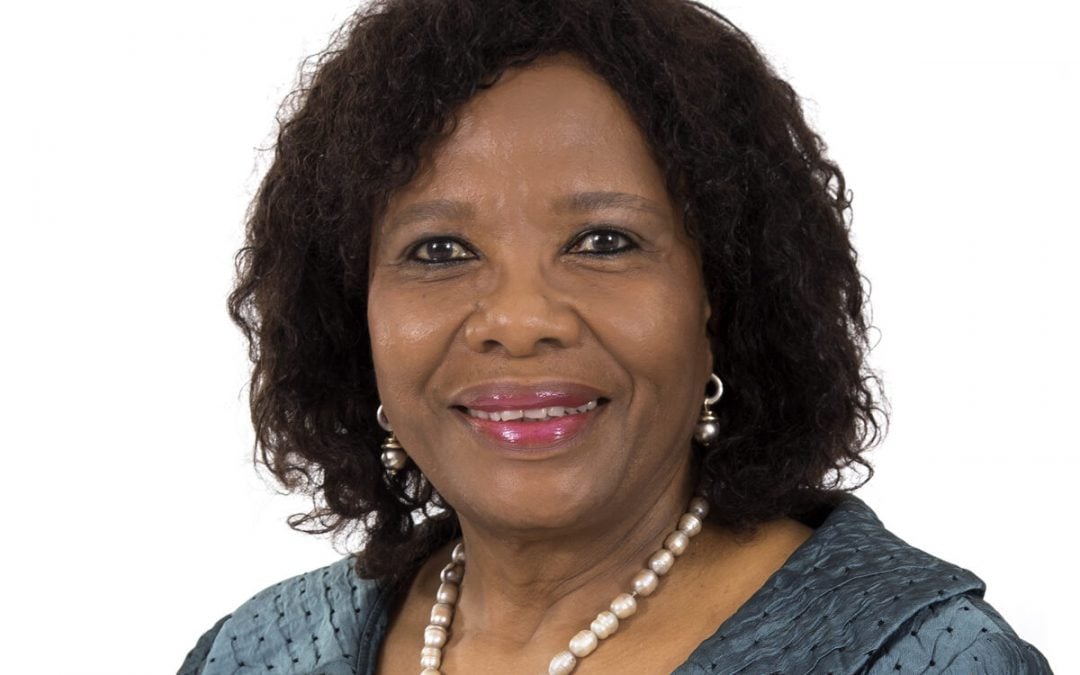The greening champion who is making sure that unemployed, underemployed, and those looking to augment their income have the skills to start and operate their own green business.
A rare opportunity to work and learn alongside a social entrepreneur in Sri Lanka three years ago set Dorah Marema on a path to her fulfilling role in the green economy.
As a concept, the green economy suggests that participants are people who care about the impact their business operations have on the environment.
In the context of a developing world, businesses in this sector are often social enterprises that are closely tied to the communities they operate in. This was a perfect fit for Marema, who came from a background of running successful non-profit organisations.
But the transition, which included figuring out how to generate income and be financially sustainable, was hard for the then 42-year-old and her business partner Christina Vessey. They enrolled for the Global Social Entrepreneurship course with the Bookbridge Foundation and the University of Basel.
It was this course that included the visit to Sri Lanka.
“This was a huge eye-opener for me, because it gave me both the theoretical and practical skills and tools to venture into social entrepreneurship.
“We spent over 10 days in a small rural village in Sri Lanka helping a social entrepreneur from that country to set up and launch his business,” she says.
When the two got back they immediately set about creating the Green Business College, a social enterprise they now operate, which is dedicated to grooming “green entrepreneurs” by pairing practical green skills and business know-how.
This is for the unemployed, the underemployed, and those seeking to augment their income and operate their own green businesses. These businesses include beekeeping, food processing, vermiculture and composting.
“Businesses have a moral and ethical obligation to future generations and other species to sustain this planet. When they don’t act responsibly they will contribute to the growing global climate change problems that are already affecting the entire world,” Marema says.
She continues: “I think, for women, social enterprises are already a source of additional and, crucially, unrestricted income. They provide women, either as employees or business owners, with a genuine stake in the future, because they contribute to new levels of ‘agency’ and trust. “They are also able to produce more innovation, transparency and attention to risk than is produced by the male-dominated leadership of many established business models. They also build confidence among women and provide new role models for the next generation.”
With this in mind, Green Business College offers students more than practical skills in how to derive monetary value out of their social enterprises. They offer coaching and mentoring that produces entrepreneurs who are confident to collaborate on an equal basis.
“It is not uncommon for black women to feel like they have to make others, especially their male counterparts, feel comfortable when they’re in a group — especially if that group is made up of people who look nothing like them. Many grow up in environments that nurture them to be submissive to men even when they are very senior and knowledgeable.
“They are often discouraged from shining and giving themselves credit for being talented,” she adds.
Coming from humble beginnings in Kaditshwene village, Mokopane, in Limpopo province, Marema has made a name for herself in the non-profit organisation sector.
Besides a host of awards, including one from the United Nations Framework Convention for Climate Change’s Women and Gender Constituency in 2015, Marema was president of the Southern Africa chapter of GenderCC, a global network of organisations, experts and activists working for gender equality, women’s rights and climate justice.
She was also the executive director of the GreenHouse Project, a Johannesburg-based non-profit that works on sustainability in poor areas of the city, and is a 2019 Atlantic Fellow for racial equity.
She says her inspiration is drawn from “the women who came before me, on whose shoulders I climbed to get to this place”.
“I also draw my power from the millions of ordinary grassroots women who wake up every day against all odds, continue to work hard to provide for their families, and be the change they want to see in their communities, with very little or no support.”

